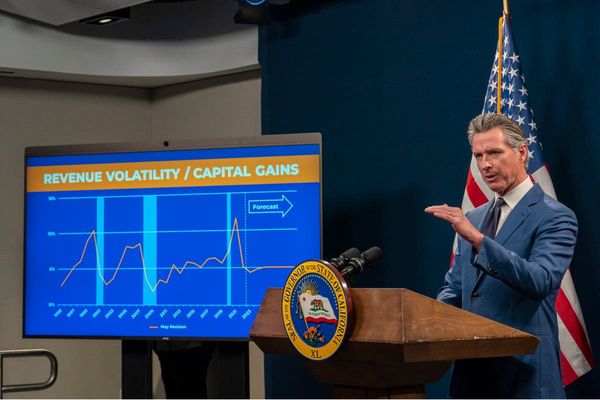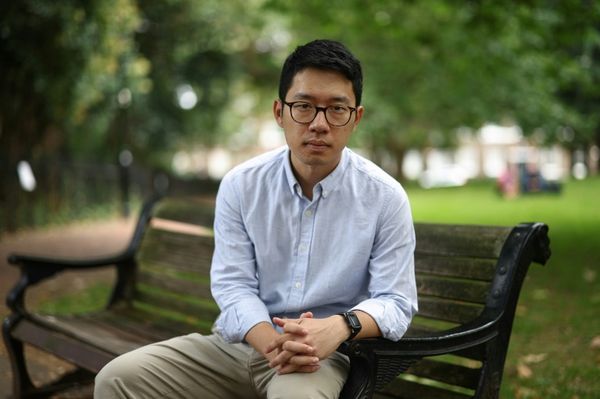
Avoiding being dragged into a potential new Cold War in the Indo-Pacific remains a strategic priority in Wellington
Opinion: When Prime Minister Chris Hipkins met Xi Jinping in Beijing it was the first time in almost four years that a New Zealand prime minister had visited China on an official visit.
Despite some obvious tension in the relationship over the past year, Xi stated in his opening remarks that New Zealand was a "friend and partner" and the relationship was one China viewed with a “great deal of importance".
In the press conference afterwards, Hipkins was grilled a number of times as to whether New Zealand also considers China a friend and, only after much prodding, he eventually stated that it "depends on the context, but yes, by and large" China was a friend to New Zealand.
READ MORE:
* Hipkins in China: swimming in the deep end
* ‘We must be broke again’ – our China policy is trade
* NZ’s uneasy stability with China
* Mahuta’s China trip a test of NZ sensitivities
* China envoy: ‘There is no red line redder than the Taiwan question’
Friendship as a concept in international relations has a long history. In the West, bilateral relationships have often been gauged along an amity-enmity continuum. The noted American International Relations scholar Alexander Wendt described a friendship as a relationship between two states where “disputes will be settled without war or threat of war” and that they would “fight as a team if the security of any one is threatened by a third party”.
Unsurprisingly, under such a conceptualisation of friendship, it is not hard to see why Hipkins felt somewhat reluctant to call China a friend.
However, the conception of friendship in China’s understanding of international relations and foreign policy is quite different. China’s notion of friendship is heavily influenced by Confucianism, which emphasises a relational understanding of the social world as a web of “dynamic, unfolding relations”.
The prominent Chinese international relations scholar Qin Yaqing argues that such an understanding places relationships, not the actors themselves, as the key element of international relations.
'The People’s Daily' – China’s largest newspaper – noted that “New Zealand has set a good example for Western countries of how to balance its relations with both China and the US”
This contrasts quite radically from the typical Western way of seeing international relations – influenced heavily by the Enlightenment – in which relations are seen as mechanistic and part of a larger order of individual rational actors, all of which can be ascertained and understood in a scientific way.
Therefore, a relational view of international relations and foreign policy is a much humbler stance and accepts – as a starting point – that relationships are unique and complex. Furthermore, it is possible to cultivate strong friendships with a wide array of actors. Consequently, this helps explain why friendship-building has been so central to China’s foreign policymaking for a long time.
Despite China becoming something of an international pariah under the leadership of Xi Jinping, particularly in the West, and a country that has often been characterised as a “lonely power”, China does not see itself as a country without friends.
Typically, if a country is deemed a strong friend of China, it will be designated as either an ‘all-weather friend’ or an ‘iron friend’. This is a practice that originated with Mao Zedong who bestowed the title of “all-weather friend” on Zambia at the state visit of Zambia’s first president, Kenneth Kaunda, in 1967.
The list of countries that fall into these categories is quite varied and includes Brazil, Serbia, Pakistan, and, still, Zambia. It also underscores China’s intentional positioning as leader of the Global South (or perhaps more aptly, the non-Western world), something it has sought to reinvigorate since the war in Ukraine.
New Zealand is unlikely to ever be termed an all-weather or iron friend because our strong relationship with Anglosphere countries (especially reflected in the importance of the Five Eyes intelligence alliance) will continue to remain a thorny issue for Beijing regardless of how independent New Zealand positions itself.
Yet, being called a friend by Xi is not immaterial and helps demonstrate how atypical New Zealand’s current relationship with China is relative to other Anglosphere countries. New Zealand is seen in China as something of an outlier in the Five Eyes group. Evidence of this can be found in the official state media of China’s coverage of Hipkins’ visit. The People’s Daily – China’s largest newspaper – noted that “New Zealand has set a good example for Western countries of how to balance its relations with both China and the US”.
New Zealand’s friendliness with China might be further bolstered by its growing embrace of te ao Māori perspectives in its foreign policymaking, spearheaded by Nanaia Mahuta’s tenure as Foreign Minister. Te ao Māori, like Confucianism, is strongly relational in how it views the world. Whereas Confucian scholars often use the metaphor of ripples on a lake to describe the centrality of relationships to the social world, te ao Māori scholars often use the metaphor of entanglements.
New Zealand’s experimentation with a Māori foreign policy should be seen as an extension of the embedded independent foreign policy that has guided New Zealand – albeit inconsistently – since the 1980s. To this end, avoiding the pitfalls of getting dragged into a potential new Cold War in the Indo-Pacific remains a strategic priority in Wellington. Maintaining a positive relationship with China is seen as key to this.
To what extent this can help New Zealand maintain its friendly ties with China remains to be seen, as despite the apparent positives of Hipkins’ visit to Beijing, if forced to choose a side it is clear New Zealand sees the US as more of a friend than China.
This is partly because China, for all its talk of friendship and partnership, can be quite an unreliable friend, prone to massive bouts of insecurity and being thin-skinned. It is very easy to hurt the feelings of China and suffer swift retaliation, as Australia can attest. It is also a friend that has very questionable domestic practices, such as its treatment of ethnic minorities – such as the Uyghurs in Xinjiang – and its ongoing slide towards totalitarianism.
Yet, friendships should not be idealised as representing a relationship between two actors that unequivocally get one another and agree on all things. Constructive disagreement and debate are actually signs of a healthy friendship. Ultimately, the fact that New Zealand has etched out a fairly unique friendship with China is a testament to adept foreign policymaking and strategic communication in Wellington over the past decade and a half.







